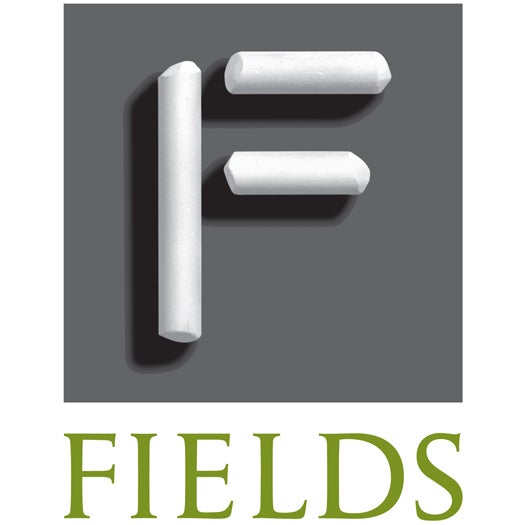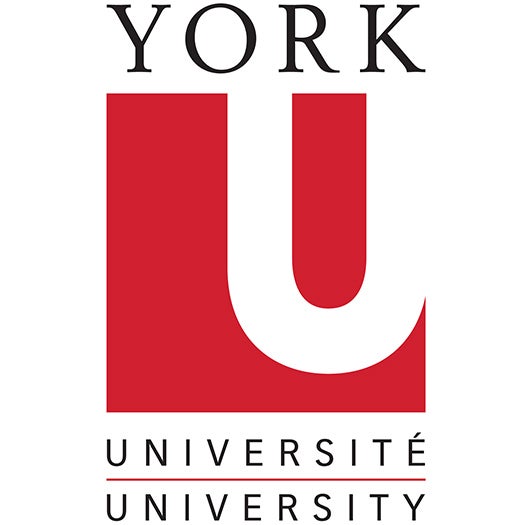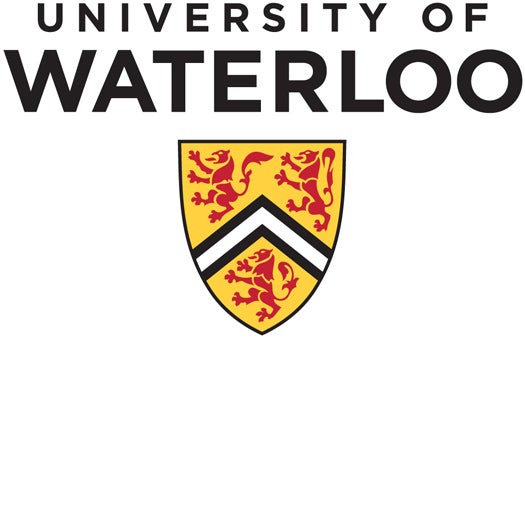Agenda and Zoom links
All times are EDT
Schedule at a glance
Zoom links:
Beaver https://zoom.us/j/6377394203
Moose https://zoom.us/j/8078256608
Polar Bear https://zoom.us/j/6063002455
Bison https://zoom.us/j/3573323369
Canada Goose https://zoom.us/j/5918371409
Caribou https://zoom.us/j/4412717962
Atlantic Puffin https://zoom.us/j/6583262476
Canada Lynx https://zoom.us/j/4237228287
All Panel Discussions https://zoom.us/j/5325455659
Opening/ All Plenaries +Prizes (Webinar) https://zoom.us/j/99676368250
Sunday Board Meeting https://zoom.us/j/8831573937
Jun 20
2:00 pm - 7:00 pm
CAIMS 2021 Board Meeting
CAIMS 2021 board meeting
Jun 21
9:50 am - 10:00 am
Opening
Opening remarks
Jun 21
10:00 am - 11:00 am
Plenary 1: Stefanie Jegelka, MIT
Chairs: Kimon Foutoulakis, Yaoliang Yu
Representation and Learning in Graph Neural Networks
Graph Neural Networks (GNNs) have become a popular tool for learning representations of graph-structured inputs, with applications in computational chemistry, recommendation, pharmacy, reasoning, and many other areas.
In this talk, I will show recent results on representational power and learning in GNNs. First, we will address representational power and important limitations of popular message passing networks and of some recent extensions of these models. Second, we consider learning, and provide new generalization bounds for GNNs. Third, although many networks may be able to represent a task, some architectures learn it better than others. I will show results that connect the architectural structure and learning behavior, in and out of the training distribution.
This talk is based on joint work with Keyulu Xu, Jingling Li, Mozhi Zhang, Simon S. Du, Ken-ichi Kawarabayashi, Vikas Garg and Tommi Jaakkola.
Jun 21
11:00 am - 1:00 pm
Beaver room
New Quantitative Approaches to Understand Hematopoietic Clonality and Leukemogenesis in Acute Myeloid Leukemia
Chair: Morgan Craig
Jun 21
11:00 am - 1:00 pm
Moose room
Jun 21
11:00 am - 1:00 pm
Bison room
Numerical Methods in Muscle Modelling and its Applications 1
Chairs: Sebastian Dominguez, Raymond J. Spiteri
Jun 21
11:00 am - 1:00 pm
Polar bear room
Jun 21
11:00 am - 1:00 pm
Canada goose room
Young Canadian Researchers — Contributions to Mathematical Modelling in Public Policy 1
Chairs: Monica Cojocaru, Zahra Mohammadi, Darren Flynn-Primrose
Jun 21
11:00 am - 1:00 pm
Caribou room
Mathematical Modelling of COVID-19 Transmission and Mitigation Strategies: Efforts to End the Pandemic 1
Chairs: Jude D. Kong, Elena Aruffo
Jun 21
11:00 am - 1:00 pm
Atlantic puffin room
Jun 21
11:00 am - 1:00 pm
Canada lynx room
Jun 21
1:00 pm - 2:00 pm
Break
Lunch Break
Jun 21
2:00 pm - 3:00 pm
Plenary 2: Arup Chakraborty, MIT
Chair: Mohammad Kohandel
Vaccination Strategies for Highly Mutable Pathogens: From Statistical Physics to Monkeys
Efforts to develop effective vaccines against highly mutable pathogens have largely been unsuccessful. HIV is a prominent example. We do not have a universal vaccine that can protect us from diverse strains of influenza either. I will describe how bringing together theory/computation (rooted in learning algorithms and statistical physics) with basic and clinical immunology can help address such challenges. Using such an approach, we translated data on HIV protein sequences to knowledge of the HIV fitness landscape – i.e., how the virus’ ability to propagate infection depends on its sequence. Predictions emerging from the fitness landscape were then tested against in vitro and clinical data. I will discuss how a potentially potent T cell-based therapeutic vaccine was designed based on these findings and tested positively for immunogenicity in rhesus macaques. If time permits, I will also describe work aimed toward eliciting antibodies that can protect against diverse strains of highly mutable pathogens. This is a problem at the intersection of statistical physics, immunology, and learning theory.
Jun 21
3:00 pm - 5:00 pm
Caribou room
Mathematical Modelling of COVID-19 Transmission and Mitigation Strategies: Efforts to End the Pandemic 2
Chairs: Jude D. Kong, Elena Aruffo
Jun 21
3:00 pm - 5:00 pm
Canada lynx room
Jun 21
3:00 pm - 5:00 pm
Atlantic puffin room
Jun 21
3:00 pm - 5:00 pm
Polar bear room
Jun 21
3:00 pm - 5:00 pm
Canada goose room
Young Canadian Researchers — Contributions to Mathematical Modelling in Public Policy 2
Chairs: Monica Cojocaru, Zahra Mohammadi, Darren Flynn-Primrose
Jun 21
3:00 pm - 5:00 pm
Bison room
Numerical Methods in Muscle Modelling and its Applications 2
Chairs: Sebastian Dominguez, Raymond J. Spiteri
Jun 21
3:00 pm - 5:00 pm
Moose room
Jun 21
3:00 pm - 5:00 pm
Beaver room
Jun 21
5:00 pm - 6:30 pm
NSERC Presentation
A presentation by the Natural Sciences and Engineering Research Council of Canada, the major federal agency responsible for funding natural sciences and engineering research.
Jun 22
9:30 am - 10:30 am
Plenary 3: Kees Oosterlee, Utrecht University
Chairs: Christina Christara, Ken Jackson
The Seven-League Scheme: Deep Learning for Large Time Step Monte Carlo Simulation of SDEs
We propose an accurate data-driven numerical scheme to solve Stochastic Differential Equations (SDEs), on the basis on using large time steps. The SDE discretization is based on a polynomial chaos expansion method, and accurately determined stochastic collocation (SC) points. By an artificial neural network these SC points are learned. We then perform Monte Carlo simulations with large time steps. Error analysis confirms that this data-driven scheme results in accurate SDE solutions in the sense of strong convergence, provided the learning methodology is robust and accurate. With a variant method called the compression-decompression collocation and interpolation technique (CDC), we reduce the number of neural network functions that have to be learned, so that computational speed is enhanced. Numerical results show high quality strong convergence error results, when using large time steps, and the novel scheme outperforms some classical numerical SDE discretizations. Some applications, in financial option valuation, are presented.
Jun 22
10:30 am - 12:30 pm
Beaver room
Jun 22
10:30 am - 12:30 pm
Moose room
Jun 22
10:30 am - 12:30 pm
Polar bear room
Jun 22
10:30 am - 12:30 pm
Bison room
Jun 22
10:30 am - 12:30 pm
Caribou room
Utilizing AI and Machine Learning Techniques for Data Analytics 1
Chairs: Wenying Feng, Jimmy Huang, Jianhong Wu
Jun 22
10:30 am - 12:30 pm
Atlantic puffin room
Jun 22
10:30 am - 12:30 pm
Canada lynx room
Jun 22
10:30 am - 12:30 pm
Canada goose room
Jun 22
12:30 pm - 2:00 pm
Annual General Meeting and Break
CAIMS Annual General Meeting
Jun 22
2:00 pm - 3:30 pm
Panel: Industry and Mathematics
An open discussion on mathematics in industry
Jun 22
3:30 pm - 4:00 pm
Poster Session and Break
Poster Presentations and Break
Jun 22
4:00 pm - 5:00 pm
2020 CAIMS/SCMAI Research Prize 2020
Steve Ruuth, Simon Fraser University
Jun 22
5:00 pm - 6:00 pm
Plenary 4: Hansi Alice Singh, University of Victoria
Chairs: Marek Stastna, Michael Waite
Adventures in the Antarctic: Using Earth System Models to Explore the Continent, Southern Ocean, and Sea Ice
Jun 23
10:00 am - 11:00 am
2020 CAIMS-PIMS Early Career Award
Jun Liu, University of Waterloo
Jun 23
11:00 am - 12:30 pm
Panel: Equality, Diversity and Inclusion in Mathematics
An open discussion of Equality, Diversity and Inclusion in Mathematics
Jun 23
1:30 pm - 3:30 pm
Beaver room
Jun 23
1:30 pm - 3:30 pm
Moose room
Jun 23
1:30 pm - 3:30 pm
Polar bear room
Jun 23
1:30 pm - 3:30 pm
Bison room
Jun 23
1:30 pm - 3:30 pm
Canada goose room
Jun 23
1:30 pm - 3:30 pm
Caribou room
Utilizing AI and Machine Learning Techniques for Data Analytics 2
Chairs: Wenying Feng, Jimmy Huang, Jianhong Wu
Jun 23
1:30 pm - 3:30 pm
Atlantic puffin room
Mathematical Modelling for Transmission and Control of Infectious Disease 1
Chairs: Pei Yuan, Jummy David
Jun 23
1:30 pm - 3:30 pm
Canada lynx room
Jun 23
3:30 pm - 4:00 pm
Poster Session and Break
Poster Presentations and Break
Jun 23
4:00 pm - 5:00 pm
Plenary 5: Peter Caines, McGill University
Chair: Jun Liu
Graphon Mean Field Games: A Dynamical Equilibrium Theory for Large Populations on Complex Networks
The complexity of large population multi-agent dynamical systems, such as occur in economics, communication systems, and environmental and transportation systems, makes centralized control infeasible and classical game theoretic solutions intractable.
In this talk we first present the Mean Field Game (MFG) theory of large population systems. Going to the infinite population limit, individual agent feedback strategies exist which yield Nash equilibria. These are given by the MFG equations consisting of (i) a McKean-Vlasov-Hamilton-Jacobi-Bellman equation generating the Nash values and the best response control actions, and (ii) a McKean-Vlasov-Fokker-Planck–Kolmogorov equation for the probability distribution of the states of the population, otherwise known as the mean field. The applications of MFG theory now extend from economics and finance to epidemiology and physics.
Next we introduce Graphon Mean Field Game and Control theory. Very large scale networks linking dynamical agents are now ubiquitous, with examples being given by electrical power grids and social media networks. In this setting, the emergence of the graphon theory of infinite networks has enabled the formulation of the Graphon Mean Field Game equations, and, in recent work, we have established conditions for the existence and uniqueness of solutions to the GMFG equations. As in the special case of MFG theory, it is the simplicity of the infinite population GMFG strategies which permits, in principle, their application to otherwise intractable problems involving large populations on large complex networks.
Jun 23
5:00 pm - 6:00 pm
2021 CAIMS-Fields Industrial Mathematics Prize
Nilima Nigam, Simon Fraser University
Jun 24
10:00 am - 11:00 am
2021 CAIMS/SCMAI Research Prize
David Earn, McMaster University
Jun 24
11:00 am - 1:00 pm
Beaver room
Jun 24
11:00 am - 1:00 pm
Moose room
Modelling Multiscale Systems in the Life Sciences
Chairs: Harry J. Gaebler, Maryam Ghasemi
Jun 24
11:00 am - 1:00 pm
Polar bear room
Jun 24
11:00 am - 1:00 pm
Bison room
Jun 24
11:00 am - 1:00 pm
Caribou room
Utilizing AI and Machine Learning Techniques for Data Analytics 3
Chairs: Wenying Feng, Jimmy Huang, Jianhong Wu
Jun 24
11:00 am - 1:00 pm
Atlantic puffin room
Mathematical Modelling for Transmission and Control of Infectious Disease 2
Chairs: Pei Yuan, Jummy David
Jun 24
11:00 am - 1:00 pm
Canada lynx room
Jun 24
11:00 am - 1:00 pm
Canada goose room
Jun 24
1:00 pm - 2:00 pm
Break
Break and Lunch
Jun 24
2:00 pm - 3:30 pm
Panel: Indigenization of Mathematics
An open discussion on strategies for Indigenization of mathematics
Jun 24
3:30 pm - 4:00 pm
Poster Session and Break
Poster Presentations and Break
Jun 24
4:00 pm - 5:00 pm
2021 CAIMS-PIMS Early Career Award
Brendan Pass, University of Alberta
Jun 24
5:00 pm - 6:00 pm
Plenary 6: Ben Adcock, Simon Fraser University
Chairs: Giang Tran, Sander Rhebergen
Tackling the Curse: Polynomial and Deep Neural Network Methods for Function Approximation in High Dimensions
Many problems in computational science and engineering require the accurate approximation of a target function from data. This problem is rendered challenging by the high-dimensionality of the function, the expense of generating function samples, the presence of noise in the measurements, and the fact that the target function may take values in a function space. Developing techniques that tackle these challenges without succumbing to the famous “curse of dimensionality” has been a long-standing problem.
In the first part of this talk I will give a brief survey of a decade’s worth of progress on high-dimensional function approximation via sparse polynomial expansions. I will show how the proper use of compressed sensing tools leads to algorithms for high-dimensional approximation which, unlike other approaches, possess provably near-optimal error bounds and moderate sample complexities. In particular, these techniques mitigate the curse of dimensionality to a substantial degree. The second part of the talk will be devoted to emerging approaches based on deep neural networks and deep learning. Such tools are beginning to garner substantial attention in the scientific computing community. Nonetheless, I will present evidence of a key gap between current theory and practice. I will then discuss recent results showing that there exist deep neural networks that match the performance of best-in-class schemes, and furthermore, these can indeed be trained through realizable procedures. This highlights the potential of deep neural networks, and sheds light on achieving robust, reliable and overall improved practical performance.
This talk is based on joint work with Anyi Bao, Simone Brugiapaglia, Juan M. Cardenas, Nick Dexter, Sebastian Moraga, Yi Sui and Clayton G. Webster.
CAIMS SPONSORS
With thanks and gratitude to our sponsors



